The University of Benghazi is an important institution of higher learning in Libya. Here is a detailed introduction about it:
Introduction and Overview
The University of Benghazi is an academic center in the eastern region of Libya. It has trained a large number of professional talents for the local and surrounding areas and plays an important role in Libya's education, scientific research and social development. The school offers a wide range of subject courses covering multiple fields and has a diverse student population and faculty.
History and Establishment
The University of Benghazi was established in 1955. In its development process, it has gone through different historical stages, constantly adapted to the development needs of Libya's society, economy and culture, and gradually developed into a comprehensive university with a relatively complete range of disciplines. Over time, the school has made significant progress in teaching quality, scientific research level and campus construction.
School Strength
Faculty: It has a team of teachers with high professional quality, including many professors and scholars with profound academic attainments in their respective fields. They not only have solid theoretical knowledge, but also have rich practical experience, and can provide students with high-quality teaching and guidance.
Scientific research results: The school encourages teachers and students to actively participate in scientific research activities and has achieved certain research results in multiple disciplines. Some scientific research projects are closely integrated with the actual needs of Libya, providing useful references for solving local economic, social and environmental problems.
Nature of the institution
The University of Benghazi is a public university funded and managed by the Libyan government. This nature enables the school to provide relatively low-cost high-quality educational resources to students, and also shoulders the important mission of serving national and social development.
Educational philosophy
The school adheres to the educational philosophy of all-round development and focuses on cultivating students' comprehensive quality and innovation ability. Emphasizing the combination of theory and practice, it is committed to enabling students to not only master solid professional knowledge, but also have the ability to solve practical problems and teamwork spirit. At the same time, students are encouraged to actively participate in social activities, cultivate a sense of social responsibility, and become talents who contribute to the country and society.
Key laboratories and disciplines
Key disciplines: Medicine, engineering, business, humanities and social sciences are the advantageous disciplines of the University of Benghazi. The medical profession has trained a large number of excellent medical talents and made important contributions to Libya's medical and health care; the engineering discipline has strong strength in the fields of petroleum engineering and civil engineering, which is closely related to Libya's economic development needs; the business major focuses on cultivating students' business management capabilities and innovative thinking, and has trained many professional talents for local enterprises; the humanities and social sciences disciplines have a deep academic accumulation in history, culture, language, etc., which promotes cultural inheritance and social development.
Key laboratories: There are some key laboratories in the fields of medicine and engineering, such as medical research laboratories and petroleum engineering laboratories. These laboratories are equipped with advanced experimental equipment and instruments, which provide good conditions for the scientific research work of teachers and students, help to carry out high-level research projects, and promote the development of disciplines.
Faculty
The University of Benghazi has several faculties to facilitate discipline management and teaching organization. Common faculties include the Faculty of Medicine, the Faculty of Engineering, the Faculty of Business, the Faculty of Humanities and Social Sciences, the Faculty of Science, etc. Each faculty has its own teaching and research institutions, which are responsible for the formulation of teaching plans, course arrangements, scientific research project development, and student management of relevant disciplines.
Ranking
Due to a variety of factors, including differences in regional education systems, the applicability of international evaluation standards, and the domestic situation in Libya, the University of Benghazi does not stand out in the international mainstream university rankings. However, in Libya, the University of Benghazi has a high reputation and status, and is one of the higher education institutions that local students aspire to. In terms of subject rankings, its advantageous subjects are in a leading position in the country.
Expenses
Tuition fees: As a public university, the University of Benghazi charges relatively low tuition fees to Libyan students, aiming to ensure that the majority of students can receive higher education. For international students, tuition fees vary according to different subjects and degree levels. Generally speaking, undergraduate tuition fees are about US$1,000-2,000 per year, and graduate tuition fees are slightly higher, about US$2,000-3,000 per year.
Living expenses: The cost of living in Benghazi is relatively moderate, and students' living expenses include accommodation, food, transportation, etc. The monthly living expenses are about US$300-500, and the specific expenses will fluctuate depending on personal lifestyle and consumption habits.
Campus Environment
Campus Layout: The campus covers a large area and has a reasonable layout. It has modern teaching buildings, libraries, laboratories, student dormitories, canteens and other facilities. The teaching area, living area and sports area are relatively independent and interconnected, providing students with convenient learning and living conditions.
Campus Landscape: The campus is shaded by trees and has a beautiful environment, creating a quiet and comfortable learning atmosphere. The school pays attention to campus cultural construction and has set up some cultural landscapes and art sculptures to enrich the cultural connotation of the campus.
Infrastructure: The school's infrastructure is relatively complete, and the network covers all areas of the campus, which provides convenience for students' study and research. At the same time, the school is also equipped with sports facilities such as football fields, basketball courts, gymnasiums, etc., encouraging students to actively participate in sports activities and maintain physical and mental health.
-

Libyan Academy for Postgraduate Studies
-
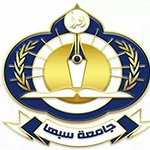
Sebha University
-
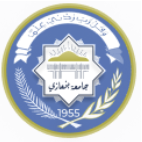
University of Benghazi
-
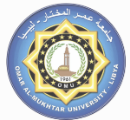
Omar Al-Mukhtar University
-
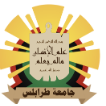
University of Tripoli
-
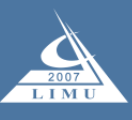
Libyan International Medical University
-
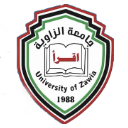
University of Zawia
-

University of Gharyan
-
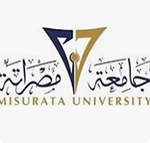
University of Misurata
-

Mesoamerican University
-

Istmo University
-

Mariano Galvez University of Guatemala
-

Regional University of Guatemala
-

Galileo University
-

Francisco Marroquín University
-

Rafael Landívar University
-

University of the Valley of Guatemala
-

University of San Carlos of Guatemala
-

Technological Institute of Tlaxcala Plateau
-

Golfo University
-

Technological University of South Sonora
-

Technological University of Huejotzingo
-

Tizimín Institute of Technology
-

Chilpancingo Institute of Technology
